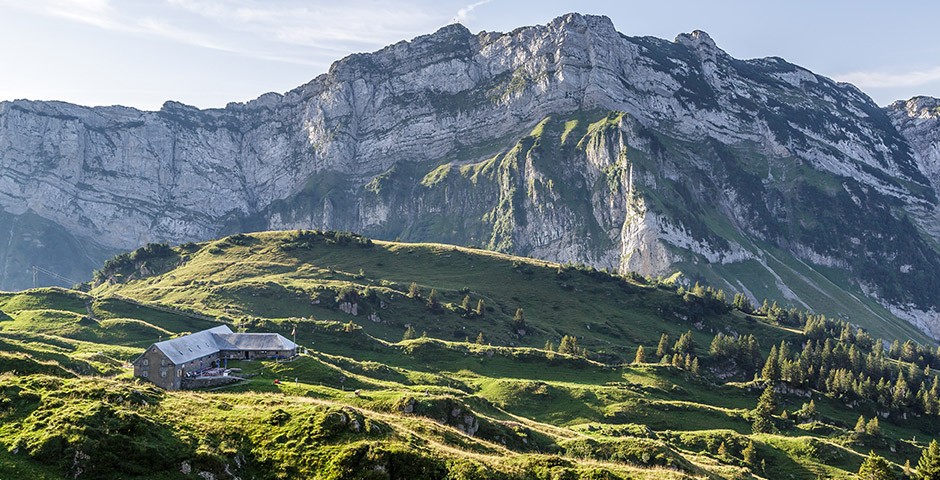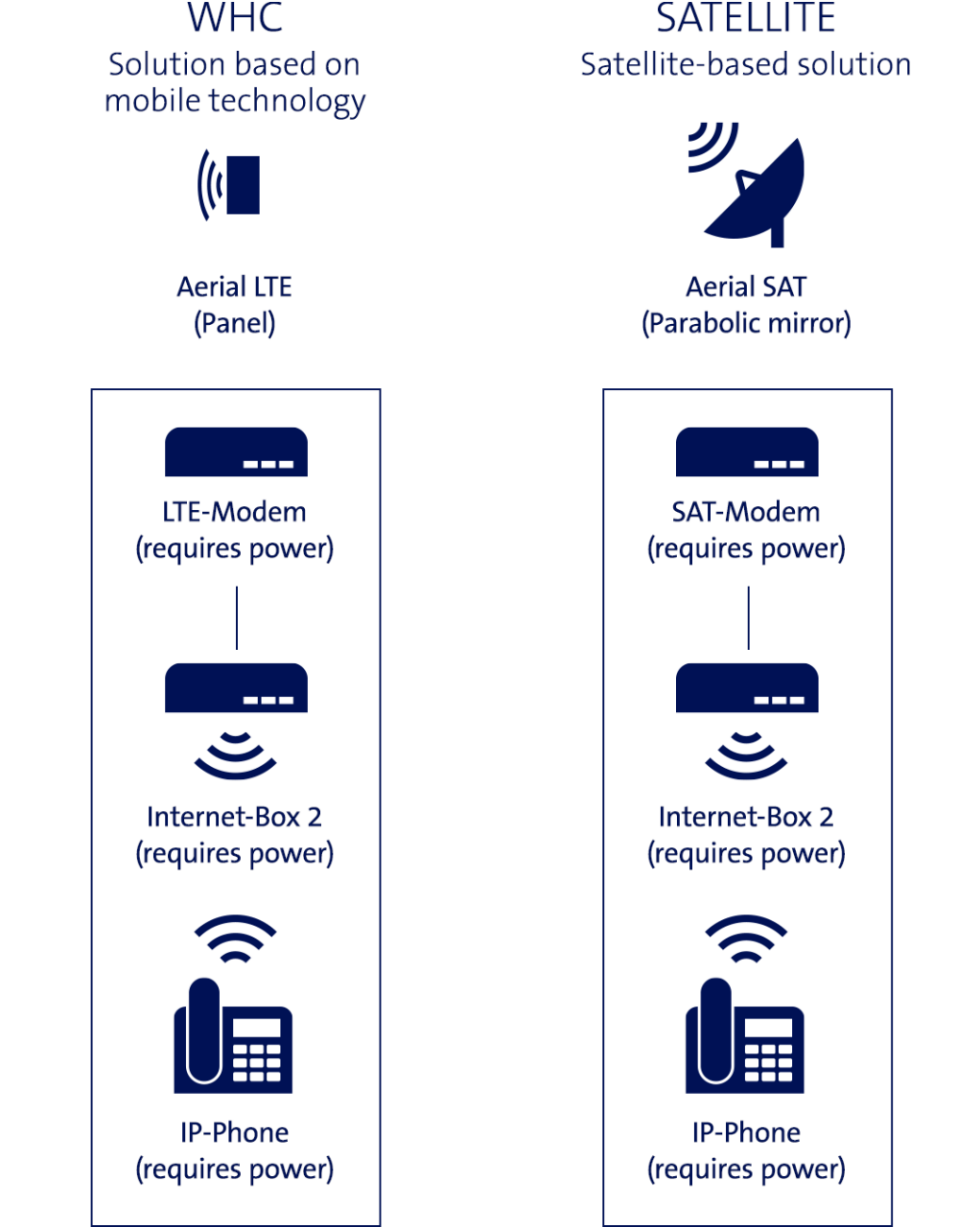
Oberchäseren benefits from All IP
Swisscom digitises 240 alpine businesses
This summer, Swisscom is joining forces with the alpine associations to convert around 240 Alpine businesses to All-IP. As part of a unique commitment, Swisscom is supporting the alpine associations to fund the power supply solution required. Alp Oberchäseren at Amden is a classic example of how Swisscom is driving digitisation even in the remotest locations.
Esther Hüsler, 3 August 2018
Alp Oberchäseren lies to the north of the Walensee Lake at 1,651 metres above sea level, with no mobile phone reception. There is no road, and no mountain railway leads to the alpine lodge with its 25 cows, accommodation for 40 people and outdoor terrace with space for 80 people. The only way to get there is by walking for at least an hour and a half. Many guests spend several days on the Toggenburger Höhenweg hiking route. They want to be certain of having a roof over their heads when they arrive. And the kitchen relies on being able to plan for the right number of guests, as extra supplies cannot be ordered in at the last minute. Alp Oberchäseren does not have electricity or mobile phone reception. Its only link to the outside world is Swisscom's traditional analogue fixed network telephony. This is now being replaced as part of the Swiss-wide migration to All IP through a future proof satellite-based solution.
Swisscom is replacing the analogue fixed network telephony at Alp Oberchäseren with a satellite-based solution. The new IP telephone, the router and the satellite modem are all powered by solar energy. Installation takes less than half a day and is financed by Swisscom and the alpine associations. Total length of video 02:15 min.
When they switch over to IP telephony, every customer receives a suitable communication solution to fulfil the basic service provision. Depending on the location, different infrastructure technologies are used, including fixed-network broadband (DSL), mobile-based “Wireless Home Connection” (WHC) or satellite-based (SAT) solutions. The equipment (receiver, modem and router) will be installed by Swisscom or one of its partners.

“We don’t have mobile phone reception here and we can only be reached on foot. So we rely on fixed network telephony in emergencies.” Pius Jöhl and his family are open for business from June to October.
Swisscom solutions for remote locations

Along with the associations, Swisscom tested several power supply solutions based on solar panels and storage batteries. The associations have now selected a solar-based power supply solution of a modular design, which is also user-friendly. At the same time, some chalets and alpine farms have already invested in their own power supply system or are planning to do so. Swisscom is supporting these chalets with a fixed sum to ensure availability of the additional power required for IP telephony.

“I need the telephone to take our guests’ reservations.” Sarah Roth is responsible for the restaurant and the overnight guests during the summer season.
Bringing the new network to the Alps
In autumn 2017, Swisscom joined the alpine associations SAC and SAV in a pilot project to test how to provide IP technology to alpine farms, businesses and SAC huts. The experience gained was used to plan and implement the current rollout to more than 240 businesses this summer.
Watch the video

“Every installation is unique.”
Peter Eschmann is the project manager in charge of the migration to All-IP in remote locations. Digitisation of the individual alpine businesses is as varied as the Swiss mountain surroundings. But, if all goes well, the target of converting all 240 businesses this summer should be achieved.
Did the conversion of the alpine businesses to All-IP get off to a good start?
Last autumn we conducted a successful initial pilot project with solar power and IP telephony in an alpine business in the Bern canton. The aim was to find out how many and which alpine farms, businesses and huts are actually affected by energy problems. Although Swisscom has details of its customers' lines and telephone numbers, it is not an electricity supplier and so doesn't know who has a power supply. We now have a fuller picture and know that around 240 alpine farms, SAC huts and mountain chalets are affected.
What is the current status of the conversion?
Our schedule is determined by the All-IP migration across Switzerland. We want to migrate alpine businesses and huts in a timely manner, so they can continue to communicate with the outside world. Ideally, the power supply solution will be installed at the same time as the changeover to IP telephony (see above). The aim is to migrate as many alpine businesses and mountain huts as possible to IP during the summer of 2018. At the moment, everything is on schedule.
What are the biggest challenges?
Actually, each installation is unique. Although that’s exciting, it also creates regular challenges. Factors like time and weather cannot be underestimated either: in many cases, mountain huts and alpine farms in very remote locations are only accessible by helicopter.
All-IP – the future is here.

Swisscom is switching from analogue telephony to the Internet Protocol (IP). The final locations are now being connected.